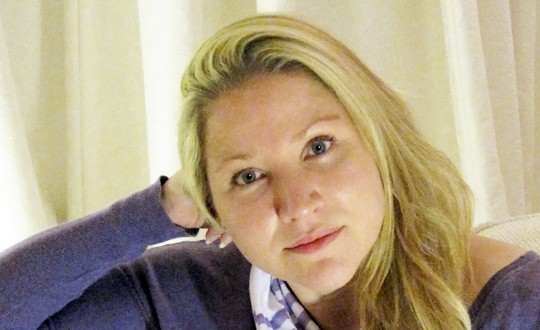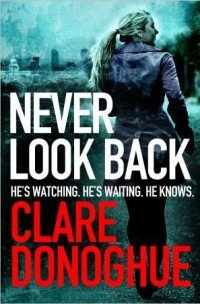
Back in 2011, Clare Donoghue’s manuscript The Watcher was longlisted for the CWA Debut Dagger. It didn’t win but she stuck with it and last year the book came out as Never Look Back. An incredible debut novel, it has made our current Recommended list (below to the right). Today Clare joins us to talk about writing the book, getting it published, and it’s upcoming release in the US…
What did you do before becoming a crime author?
I worked in a law firm in London as the deputy credit manager, which basically meant I made sure people paid their invoices on time.
You were long-listed for the CWA Debut Dagger in 2011. What did that do for you?
The long-list didn’t do anything in itself for my writing career but having my work recognised by my peers gave me an enormous boost in confidence and the self-belief to finish Never Look Back, or Chasing Shadows, as it was then.
There was still a long way to go before getting published. What went into getting published after being long-listed?
I was long-listed for the dagger when I was halfway through my Masters at Bath Spa University. At the end of the academic year we had to arrange a launch party in London and present an anthology of all the students work. I was lucky enough to meet Hellie Ogden from Janklow & Nesbit (she was with Greene & Heaton at the time) and together we worked on the manuscript before sending it out to publishers. I received a lot of very nice rejections before signing up with Pan Macmillan. My path has been relatively quick in comparison to most other writers so I am very grateful to the MA for giving me the step-up I needed.

Serial killer or no, your novel realises the terror that stalking can cause. Why was this topic important to you?
I have always been interested in stalking, not only the impact on the victim but on the motivations of the stalkers themselves. I am very interested in psychology as a whole and why people behave the way they do and the very real consequences of their actions both good and bad. As a writer I am in a unique position to be able to examine these issues via the safety of fiction.
Our reviewer also felt your characters seemed almost instantly real. Tell us about Lockyer and Sarah Grainger, and your approach to developing them?
Sarah was the first character I developed and in fact, she was the main character until I realised, about a third of the way through the novel, that I needed another perspective. That is how Lockyer came to be. He was my ‘man on the inside’ who could take me and my reader through the investigation.
I recognise some of myself in Sarah, which would make sense as she was my very first character, although sadly I’m not 5-foot-10 and skinny. That must have been wish-fulfillment on my part! She is a woman who has worked hard to get where she is in life and yet we have to watch her life crumble at the hands of her stalker. This felt very poignant to me and I was keen to portray the devastation on every aspect of her life. Lockyer as a character began as the strong, dependable man who would swoop in to save the day, a stereotype I was used to reading and seeing in films. However, as my writing progressed I realised there was much more to him and he had vulnerabilities and weaknesses just like you or me. In a way he and Sarah are in a similar situation – Sarah is shut off from her life by her stalker, whereas Lockyer shuts himself off from his personal life by using his work.
Lockyer’s brother has autism. What made you want to include and describe this condition in the story?
If I’m honest I’m not exactly sure why. In the beginning Lockyer’s character needed an aspect to him that readers could sympathise or empathise with and so a family member made sense but once I created Bobby he became far more than an author’s device. In fact, in the early stages of the novel an agent suggested Bobby be removed from the story altogether. It was only when this was suggested and I refused that I realised how much the character meant to me, to Lockyer and to the book as a whole. The idea that a loved one can be ‘shut-off’ from their family by this condition never fails to move me and I greatly admire those who cope with autism every day however slight or severe the sufferer.
What’s next for Lockyer and Bennett, and can you tell us more about your next novel?
No Place To Die is scheduled for publication in the UK in February 2015, which I’m very excited about. DS Jane Bennett takes the narrative lead in this novel and is faced with a very unusual murder scene – a man-made tomb and a body – the identity of the victim kicks off the biggest investigation of Jane’s career. Her relationship with Lockyer is strained after issues arising from the previous case so not only must Jane catch a killer but she also has to contend with her boss who is, right now, no good to anyone.
Anything you want to add?
I am very excited to see Never Look Back in the US – I can’t wait to go and see it on the shelves over there.
US readers can order Never Look Back here.









